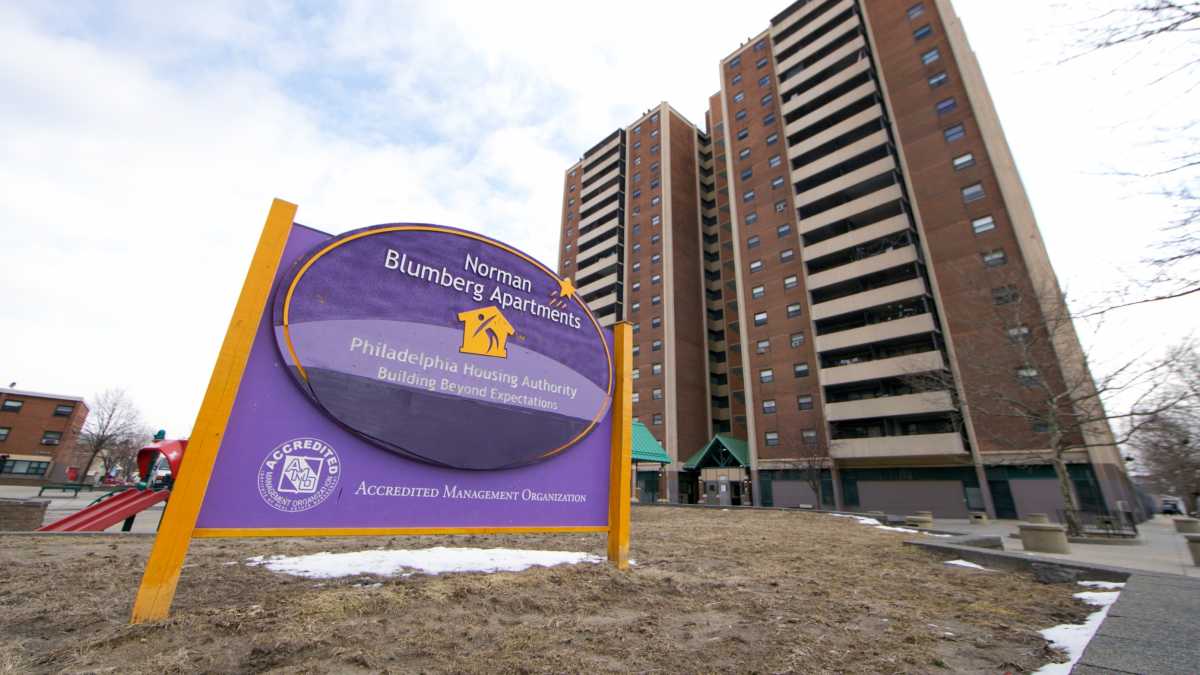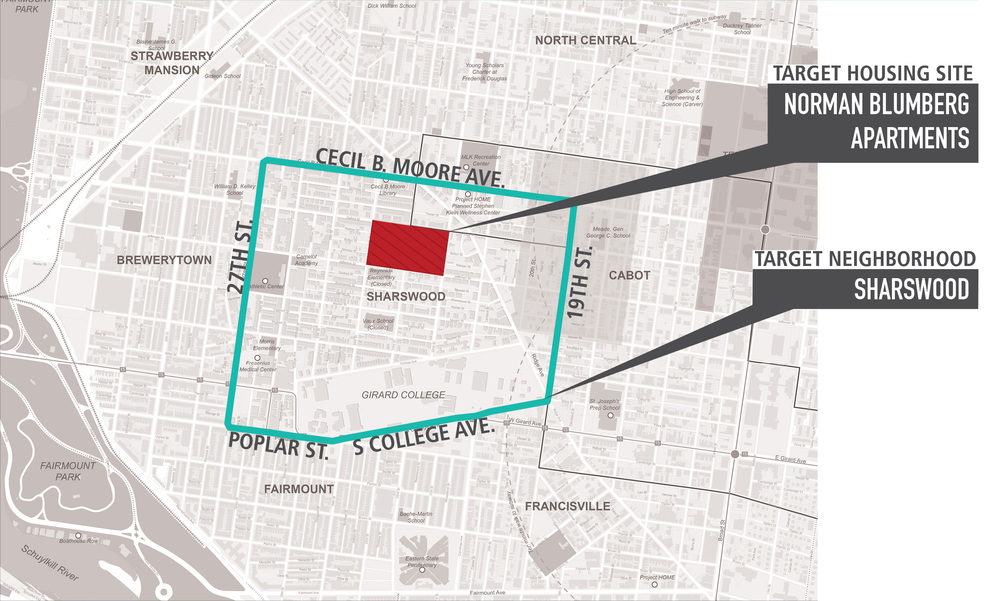Housing Authority discusses Sharswood renewal project at Planning Commission

The Philadelphia Housing Authority plans to replace every unit of housing that will be lost in the demolition of the Blumberg project towers in North Philadelphia, a representative told the Planning Commission on Tuesday.
Michael Johns, an executive vice president at PHA and member of the city’s Civic Design Review Committee, gave a presentation about the Sharswood-Blumberg Neighborhood Transformation Plan at the Commission’s request. He said the plan—which involves the demolition of existing housing and acquisition more than 1,200 properties in the area bounded by 19th, 27th, Girard and Cecil B. Moore—is one of the biggest projects in the Authority’s history.

As of Saturday, Johns said, all the families living in the Blumberg towers have been relocated. PHA plans to tear down two of the existing towers and rehab a third tower for senior housing. In the first phase of construction, it plans to build 57 new affordable rental units and rehab 96 existing rental units for seniors. In later phases of development, the Authority plans to build 630 rental units, with 100 rented at market rate and 530 rented at reduced rates. It will also build 420 units for homeownership, with 100 sold at market rate and 320 sold below market rate.
PHA is also moving its headquarters to the neighborhood. Johns said that decision would support its planned development of commercial space along Ridge Avenue. Hundreds of PHA employees in the area will create a new demand for retail in the area. The Authority is also hoping to bring a supermarket to the neighborhood, which has lived without one for a number of years.
The Authority plans to develop public green space as well. And it is planning to reopen General John F. Reynolds elementary school, which closed in 2013, according to Johns. There will be an additional “social services component” to the project that Johns declined to identify.
All of this has been ably summarized by Sandy Smith at Philadelphia Magazine before. The Housing Authority has also begun posting information about the project on a dedicated website.
On Tuesday, Johns said that the Blumberg project represents a failed model of “barracks-style” public-housing development.
“This development helped to spur the decline of the neighborhood,” Johns said. “… PHA is committed to being part of the revitalization of the neighborhood.”
Alan Greenberger, the deputy mayor for economic development, said that PHA should be prepared to give quarterly updates to the Planning Commission as the project develops. In response to a question from Greenberger, Johns said the project is expected to take 5-7 years to complete, but it can be done more quickly if PHA is able to partner with private developers.
The Authority is planning a “developers’ roundtable” to discuss the project with potential partners, which is tentatively scheduled for some time in December. The Authority is also working toward creating design standards for the housing, Johns said.
Faye Anderson, the director of All That Philly Jazz, asked Johns when the Authority would begin a study of potential historic sites in the neighborhood. He said the Authority is starting to plan for that process, but wouldn’t hold a meeting about it until next year.
The Authority announced that it would demolish the Blumberg towers last year. Since then, PHA has begun eminent domain proceedings on 800 privately owned properties in the area in partnership with the Philadelphia Redevelopment Authority. Of the more than 800 properties PHA is looking to acquire by eminent domain, the Redevelopment Authority has estimated that only 73 are occupied.
The first phase of construction, involving 57 affordable rental units, is expected to cost $21 million, which amounts to more than $360,000 per unit. The first phase of construction is being funded with federal low-income housing tax credits, a $1.5 million grant from the city, and the Authority’s own funds. Alan Greenberger asked how PHA expected to entice private developers to build affordable housing as part of the project. Johns said that developers would be encouraged to take advantage of existing incentives, like inclusionary zoning bonuses, and that PHA was also likely to directly provide them with funding.
WHYY is your source for fact-based, in-depth journalism and information. As a nonprofit organization, we rely on financial support from readers like you. Please give today.



